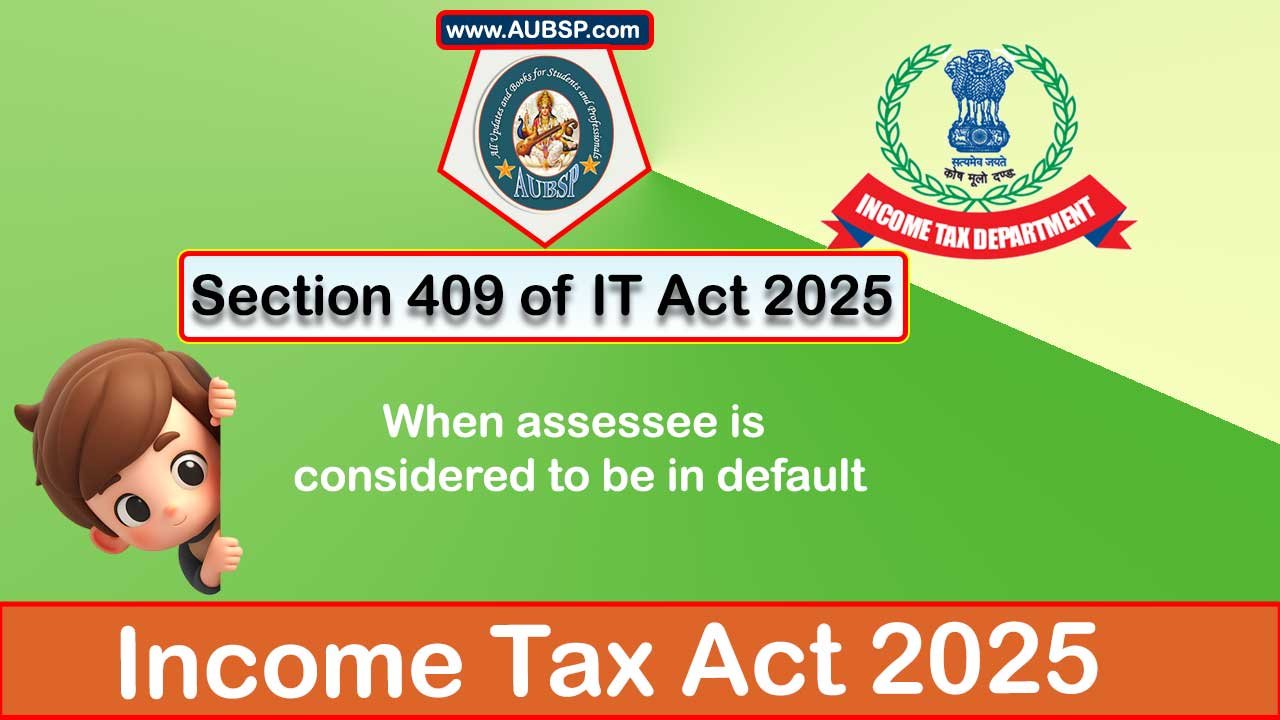When assessee is considered to be in default
[Section-409 as per the Income Tax Act, 2025 (this Act) w.e.f. 1st April, 2026.]
A person shall be deemed to be an assessee in default, if such person—
- (a) does not pay on the date specified in section 408, any instalment of the advance tax that he is required to pay by an order of the Assessing Officer under section 407(1) and (4); or
- (b) does not send to the Assessing Officer an intimation under section 407(8) on or before the date on which any such instalment as is not paid becomes due; or
- (c) does not pay on the basis of his estimate of his current income, the advance tax payable by him under section 407(9),
in respect of such instalments.
FAQs on Section 409 of Income Tax Act 2025
When is a person deemed to be an assessee in default under this section?
A person is deemed to be an assessee in default if they fail to comply with certain advance tax payment obligations as specified in Section 407 and Section 408.
What happens if a person does not pay the advance tax instalment on the date specified in Section 408?
If the person does not pay the advance tax instalment on the specified date, they will be considered an assessee in default.
Is a person in default if they fail to send intimation under Section 407(8)?
Yes, if the person does not send the required intimation under Section 407(8) before the due date of the unpaid instalment, they are deemed to be in default.
What if a person does not pay advance tax based on their own estimate of current income?
If a person fails to pay the advance tax payable under Section 407(9) based on their self-estimate of current income, they will be treated as an assessee in default.
Does non-payment of any one instalment of advance tax lead to default status?
Yes, failure to pay any instalment of advance tax on time, as required by the Assessing Officer or under self-assessment, results in the person being considered in default for that instalment.
Are the consequences of default limited only to advance tax instalments?
Yes, Section 409 specifically deals with defaults in relation to advance tax instalments.
Is prior notice required before being treated as an assessee in default under this section?
No, the deeming provision applies automatically based on the actions or omissions specified, without requiring prior notice.
Can a person avoid default status by furnishing intimation under Section 407(8) even if tax is not paid?
Sending intimation under Section 407(8) is a compliance requirement; failure to do so leads to default status. However, sending it alone does not excuse non-payment of tax.
If someone pays tax late but without intimation, are they still in default?
Yes, failure to provide the required intimation under Section 407(8) constitutes default even if the payment is eventually made.
Does Section 409 apply to both individuals and companies?
Yes, the deeming provisions of Section 409 apply to any person, which includes individuals, companies, firms, and other entities liable to pay advance tax.

